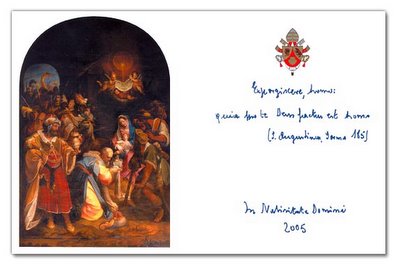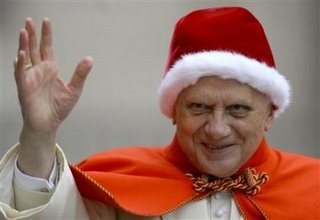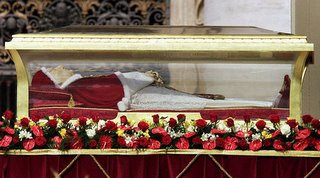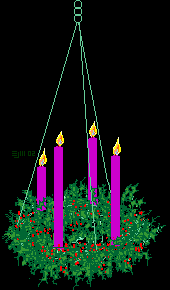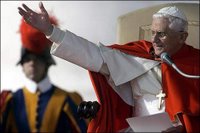O KING OF THE GENTILES and their desired One, the Cornerstone that makes both one: COME, and deliver man, whom you formed out of the dust of the earth.The fallen world is one of divisions, "Then the eyes of both were opened, and they knew that they were naked; and they sewed fig leaves together and made themselves aprons" (Gen. 3:7). We are apt to immediately think of ourselves as "different" from the rest of men--the very thing that Jesus points out as "unjustified" in the prayer of the Pharisee and Publican. Recall the Pharisee prayed: "God, I thank thee that I am not like other men, extortioners, unjust, adulterers, or even like this tax collector. I fast twice a week, I give tithes of all that I get."
The modern version is likely to be based on our own ideology, whether liberal or conservative, male or female--however we like to distinguish ourselves from the rest of "fallen" humanity. What can restore the unity of God's creation? What can make us one?
"God, be merciful to me a sinner!"
Read the First Letter of John this Christmas season. Recover a sense of what it means to be a follower of Christ.
That which was from the beginning, which we have heard, which we have seen with our eyes, which we have looked upon and touched with our hands, concerning the word of life -- the life was made manifest, and we saw it, and testify to it, and proclaim to you the eternal life which was with the Father and was made manifest to us --that which we have seen and heard we proclaim also to you, so that you may have fellowship with us; and our fellowship is with the Father and with his Son Jesus Christ.
In these last days of Advent let us seek fellowship with one another and with the Trinity in humble prayer!
This is the message we have heard from him and proclaim to you, that God is light and in him is no darkness at all. If we say we have fellowship with him while we walk in darkness, we lie and do not live according to the truth; but if we walk in the light, as he is in the light, we have fellowship with one another, and the blood of Jesus his Son cleanses us from all sin. If we say we have no sin, we deceive ourselves, and the truth is not in us. If we confess our sins, he is faithful and just, and will forgive our sins and cleanse us from all unrighteousness. If we say we have not sinned, we make him a liar, and his word is not in us.
Let us walk in His light mindful of our sinfulness and darkened intellect.
Yet I am writing you a new commandment, which is true in him and in you, because the darkness is passing away and the true light is already shining. He who says he is in the light and hates his brother is in the darkness still. He who loves his brother abides in the light, and in it there is no cause for stumbling. But he who hates his brother is in the darkness and walks in the darkness, and does not know where he is going, because the darkness has blinded his eyes. I am writing to you, little children, because your sins are forgiven for his sake.
Let us pray for one another, when we encounter division pray for unity in the Lord. O King of the Gentiles, Come!


